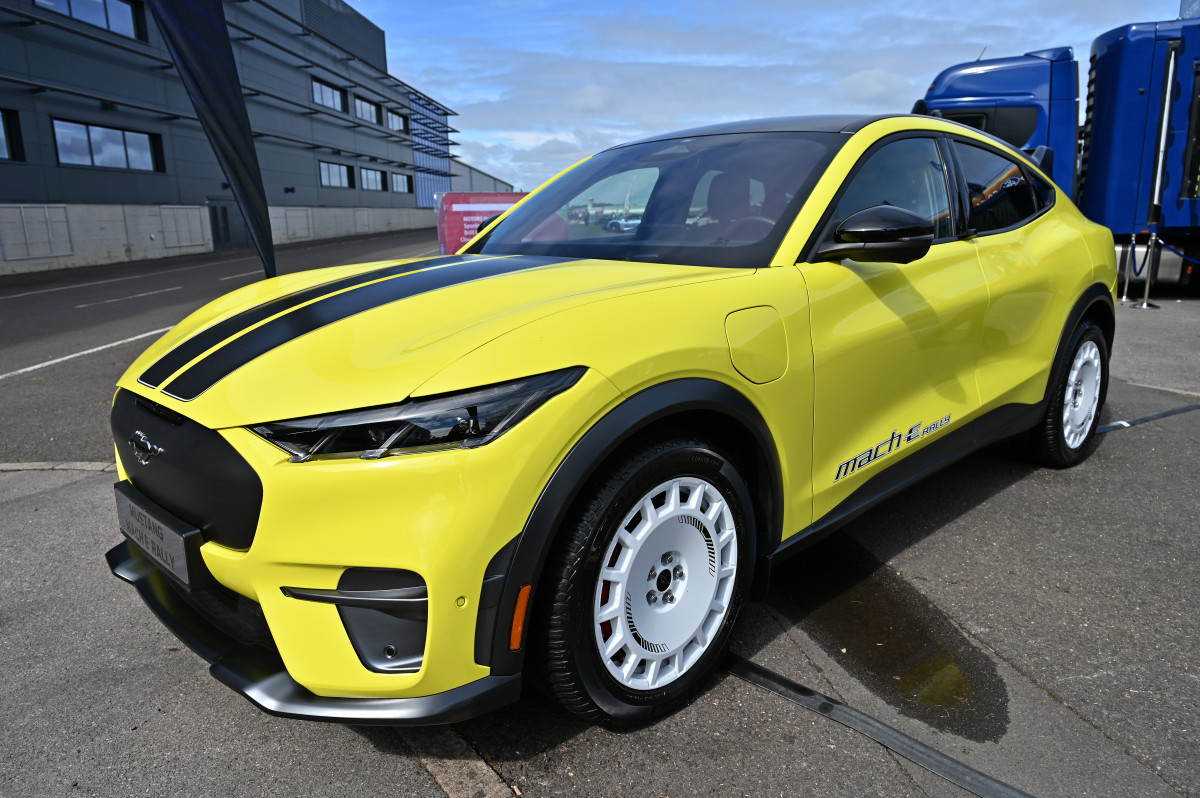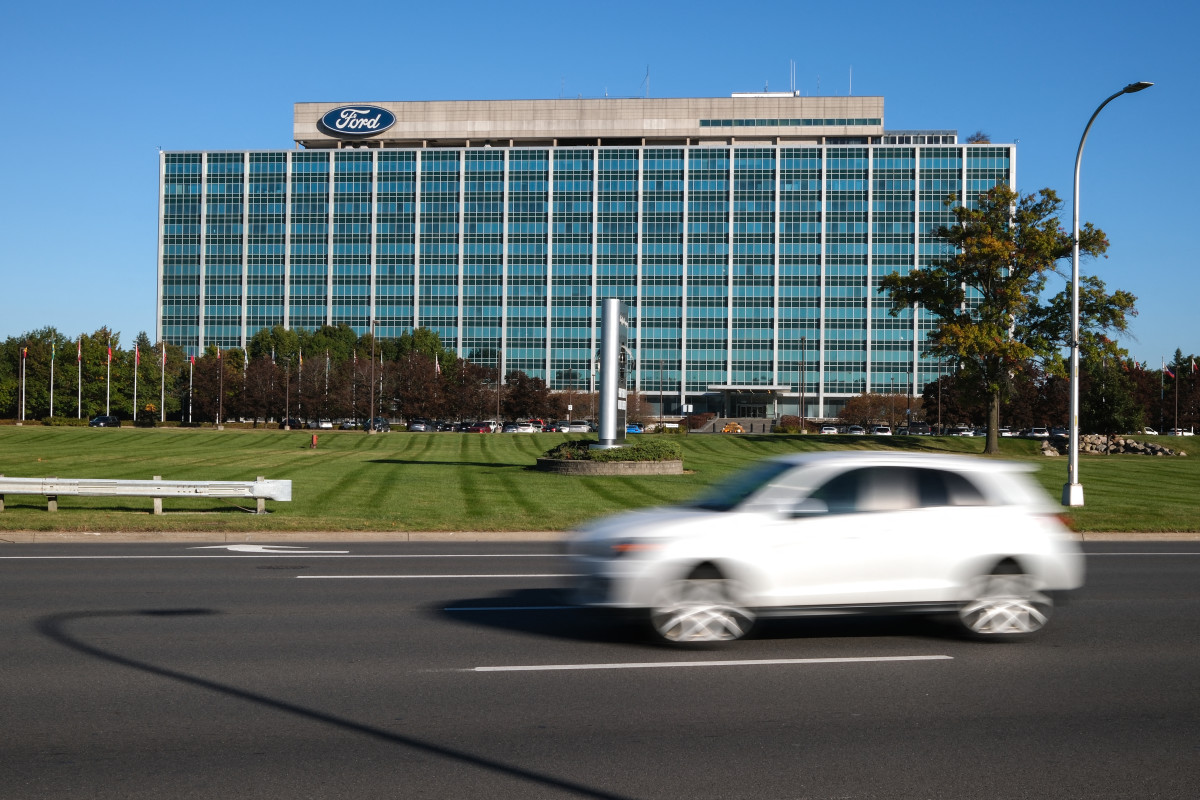
On August 21, executives at the Ford Motor Company F announced that they would dramatically shift the automaker's EV strategy in response to slowing sales demand.
Instead of producing a three-row, battery-electric SUV, it announced that it would pursue producing a family of gas-powered, hybrid-electric SUVs, a move that brought it closer to its bread and butter.
💰💸 Don’t miss the move: SIGN UP for TheStreet’s FREE Daily newsletter 💰💸
“This is really about us being nimble and listening to responses from our customers,” Ford CFO John Lawler told Automotive News at the time.
“We looked where the segment was evolving, the amount of competition, the customer needs, and then, the size of the battery that needs to go in a pure EV, the cost structure, the pricing, we could not put together a vehicle that met our requirements to be profitable in the first 12 months of launch."
However, the move is not cheap. In fact, the CFO estimated that it would cost the company a $400 million non-cash charge and additional expenses that can tally up to $1.5 billion.

Ford's EV department is still losing money
Fast forward to Oct. 28, the EV strategy adjustment was reflected as a billion-dollar weight against the company's net income when it reported earnings for Q3 2024. In total, the automaker reported increased revenues of $46.2 billion during the quarter, including a net income of $0.9 billion and adjusted EBIT of $2.6 billion.
In its release before the earnings call, the automaker stated that the results reflect "long-term value creation made possible by a winning lineup of internal combustion, hybrid, and electric vehicles for retail and commercial customers combined with an advantaged strategy and global footprint.
However, despite the adjustments and improvements, Ford's EV division, known internally as Ford Model e, remains a massive ballast against the rest of the company's achievements. The division lost $1.2 billion in EBIT during Q3 2024, a 7.9% improvement from the same period last year that still contributed to a total EBIT loss of $3.68 billion for the first nine months this year.
More Business of EVs:
- Is Tesla in trouble? Massive price cuts signal demand crisis
- Elon Musk is sending mixed messages about Tesla’s only lifesaver
- Mercedes' new factory is the answer to a very common EV criticism
Despite this, Ford CEO Jim Farley called Ford's EV division an "area of strength" that he "wouldn't trade for any of our competitors" during the earnings call. But even as he shined the laurels, Farley noted that Ford's EVs compete in a volatile environment driven by price pressure.
"In our home market in the U.S., no OEM is immune," Farley said. "Since Q1 of last year, EV volumes have grown 35% while revenues in total are flat at $14 billion. That means the progress on volume has been fully offset by prices."
The Blue Oval figurehead said that it adapted to compete by not offering lease deals that risk "brand image" but by lowering its costs by up to a billion dollars and trimming its production capacity by 35%.
Related: Ford CEO says he's sick and tired of making 'boring' cars
The term "Fix Or Repair Daily" still rings true.
Though Farley attempted to save face by touting that its upcoming "Skunk Works" models will match "the cost structure of any Chinese auto manufacturer building in Mexico in the future," much of its losses are associated with Ford's apparent penchant for quality (or lack thereof).
“Clearly our strategic advantages are not falling to the bottom line the way they should,” Farley said on the call. “Cost, especially warranty, has held back our earnings power. But as we bend that curve, there is significant financial upside for investors.”
Despite improving, Ford CFO John Lawler pointed out that Ford's warranty costs are still an anchor on the automaker's bottom line, noting that in addition to its problems at its Turkish joint venture, the combined burden prevents it from reducing costs "at a pace faster than our competition." As a result, he expects adjusted year-end EBIT of "around $10 billion" with adjusted free cash flow between $7.5 billion and $8.5 billion.
Related: Ford CEO admits to a dirty secret that can benefit automaker
However, Farley is positive that quality issues will improve at Ford, noting that the company is offering managers and executives financial rewards based on cost and quality metrics and that a recent product release saw significant improvements.
"Our three MIS or three months in service quality is getting a lot better, a 31% increase in the last three years," Farley touted.
"This year, the high-volume vehicle lines like F-150 and Escape had huge launches and really had virtually no warranty spike. J.D. Powers typically sees a 92% increase in defects during a launch."
The Ford Motor Company, which trades on the New York Stock Exchange under the ticker F, is down 8.84% from the opening bell, trading at $10.36 per share at the time of writing.
Related: Veteran fund manager sees world of pain coming for stocks







